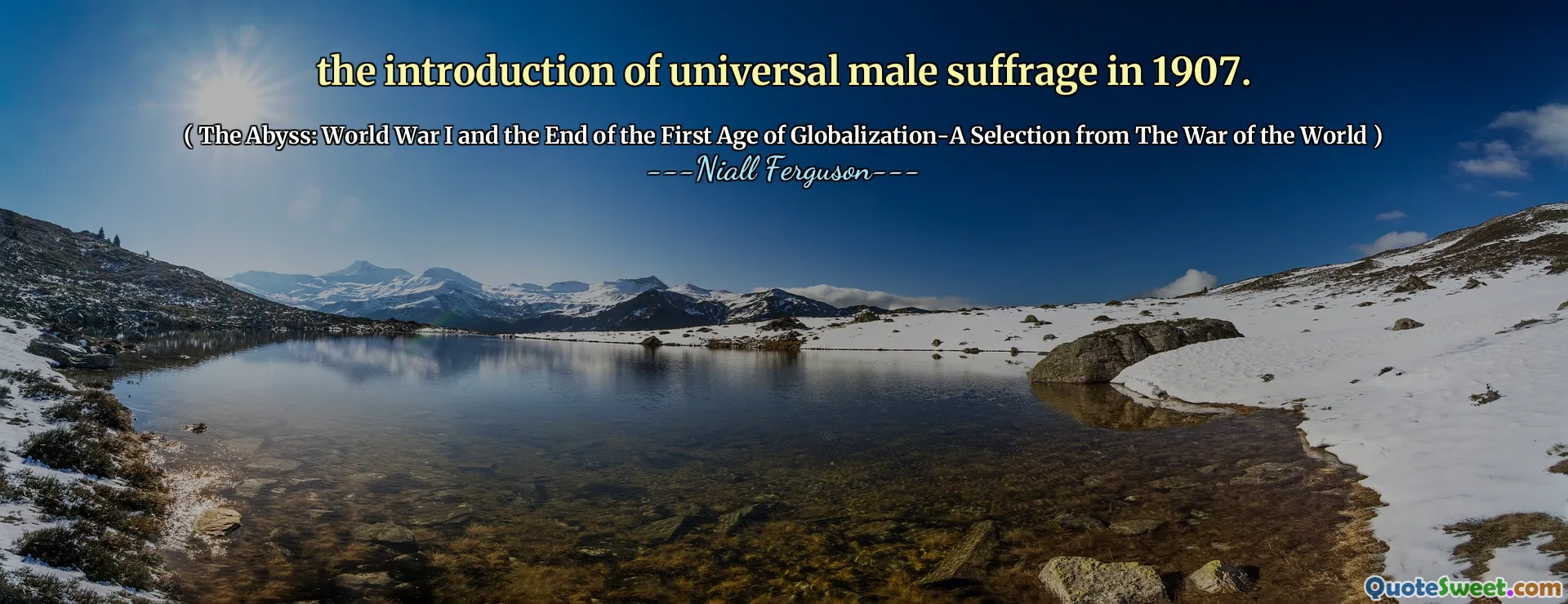
the introduction of universal male suffrage in 1907.
In his book "The Abyss: World War I and the End of the First Age of Globalization," Niall Ferguson examines significant historical shifts, including the introduction of universal male suffrage in 1907. This change marked a pivotal moment in political history, reflecting the growing demands for democratic reforms. The extension of the vote to all men transformed the political landscape, fostering a more inclusive approach to governance and empowering a broader segment of the population.
Ferguson highlights how this expansion of suffrage was a response to social changes and pressures within society. It represented a move toward more representative government, although it also raised questions about the implications for political stability and the balance of power. This transition laid the groundwork for the tumultuous events of World War I and the subsequent reconfiguration of global politics in the early 20th century, illustrating the interconnectedness of democratic ideals and the crises that followed.











